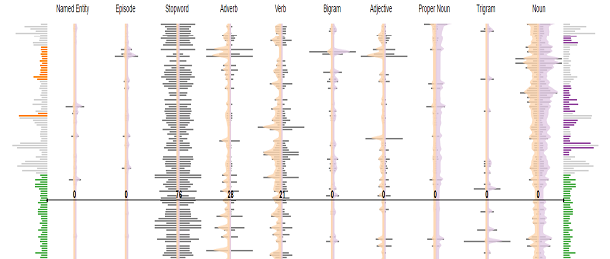
Contributors:
Mennatallah El-Assady, Rebecca Kehlbeck, Christopher Collins, Daniel Keim, and Oliver Deussen
We present a framework that allows users to incorporate the semantics of their domain knowledge for topic model refinement while remaining model-agnostic. Our approach enables users to (1) understand the semantic space of the model, (2) identify regions of potential conflicts and problems, and (3) readjust the semantic relation of concepts based on their understanding, directly influencing the topic modelling. These tasks are supported by an interactive visual analytics workspace that uses word-embedding projections to define concept regions which can then be refined. The user-refined concepts are independent of a particular document collection and can be transferred to related corpora. All user interactions within the concept space directly affect the semantic relations of the underlying vector space model, which, in turn, change the topic modelling. In addition to direct manipulation, our system guides the users’ decision-making process through recommended interactions that point out potential improvements. This targeted refinement aims at minimizing the feedback required for an efficient human-in-the-loop process. We confirm the improvements achieved through our approach in two user studies that show topic model quality improvements through our visual knowledge externalization and learning process.
Publications
-
[pods name="publication" id="4197" template="Publication Template (list item)" shortcodes=1]

